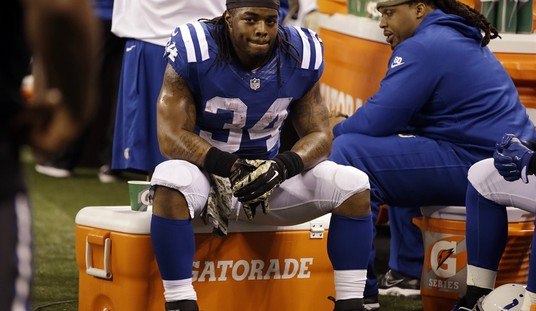Wednesday I wrote about professor Peter Boghossian and the pushback against him at Portland State University since he participated in a hoax intended to embarrass academics involved in what he terms grievance studies. Boghossian’s hoax was very successful. He and his co-authors got a number of papers published in academic journals which should never have been published. However, the school is now investigating him on the grounds that he needed permission to do an experiment on human subjects, in this case, the journal editors. Last week Boghossian released a video in which he suggested the school might be trying to push him out of his job:
Punishing Boghossian for a hoax designed to point out that the enterprise is rotten sounds absolutely ridiculous to me but Jesse Singal makes the case today that the PSU investigation is actually not much of a surprise given the standards that usually apply in any field where human experiments are involved:
The IRB system is, at root, an arrangement between research institutions — both universities and others — and the federal government. To receive federal research funds, which are the lifeblood of many research bodies, those bodies must agree, in return, to follow certain ethics procedures, particularly with regard to any research involving human subjects. That’s what IRBs do. Every research institution that receives federal funds has its own IRB, and most insist that any employee conducting research at that university have their research plan cleared by the IRB beforehand.
It might sound simple, but it’s endlessly complicated. IRB protocols used for social-science research grew out of those used for biomedical research, and there are key differences between the ethical implications of, say, obtaining informed consent to give someone an experimental medication and performing psychological experiments that might cause temporary embarrassment among its subjects. There’s a cacophonous discussion going on about whether and to what extent IRB protocols are fair, and it’s fueled by the regular emergence of over-the-top stories of IRB overreach…
All the IRB experts I communicated with said they agreed that the grievance-studies hoax qualified as a result of its basic structure, and some pointed to the language the hoaxsters used themselves — calling it a “study” in their Areo article or “a satirical scholarly audit” in a press release published earlier this week — as extra proof of that…
Now, in the video Boghossian released earlier this week, Helen Pluckrose expresses some skepticism that what they were doing was really human-studies research, but again, all the experts I spoke with disagreed. First of all, “if they believed that this was not human-subjects research, the process would have been to submit to the IRB an application that says I believe this research that I’m doing is exempt,” said Fisher. “And the IRB makes the determination if it’s not human-subject.” It’s not their call, in other words — it’s still the IRB’s.
But had Boghossian sought an exemption, he likely would have been rebuffed, anyway. IRBs tend to be very, very conservative about any experiments that could have any impact on human beings. It’s an area where academia operates according to norms quite different from those of other fields. Journalists, for example, would have no compunctions about exposing shoddy or unethical work on the part of a local business. IRBs tend to be extremely careful about this sort of thing — the assumption is usually that any small possibility of harm needs to be justified and, if possible, protected against.
Similarly, the experts Singal contacted said the use of fake data still counts as data fabrication even if the dataset was obviously meant to be part of a satirical hoax. So there may be two grounds on which this IRB could decide to punish Boghossian.
The point Singal is making is that while you can certainly disagree with the way the IRBs are run, and many academics do, they do tend to be run in precisely this way. So the investigation itself probably shouldn’t come as a surprise. However, at least one person he spoke to made the obvious point about all of this:
Stark dissented slightly from the other IRB experts I consulted on one front: She thought that while the decision to investigate Boghossian’s lack of IRB approval was perfectly legitimate and not, on its own, fishy, it was also possible that it was influenced by politics. “Universities and IRBs definitely make decisions about what issues to pursue and how aggressively to pursue them depending on the political climate on campus,” she explained in an email, “which is part of a broader national and international context.” In her view, it’s possible the investigation was both political and legitimate on the merits.
This investigation may be warranted but that doesn’t mean it’s not also being partly driven by a desire for some kind of retribution against the people who embarrassed an entire field. Singal suggests it would be best to separate out the question of whether Boghossian should have requested IRB approval from the larger question about the results of the hoax. That’s reasonable but I’m skeptical that anyone on the other side of this particular aisle is interested in doing that. On the contrary, the IRB investigation seems like a convenient way to write-off the results of the survey as flawed.
Bret Weinstein, the former Evergreen State College professor, felt that Singal was missing the point. By investigating Boghossian for fake data instead of questioning the journal that published his paper about dogs and rape culture, the academy is choosing to avoid a very awkward self-assessment in favor of an argument about following the rules.
To cover the catastrophic breach of their obligation to the public, the academy MUST now obsess over aledged rule violations by, and supposed character flaws in, the only author over which they have power, @peterboghossian.
It is a desperate attempt to restore the curtain.
— Bret Weinstein (@BretWeinstein) January 11, 2019








Join the conversation as a VIP Member